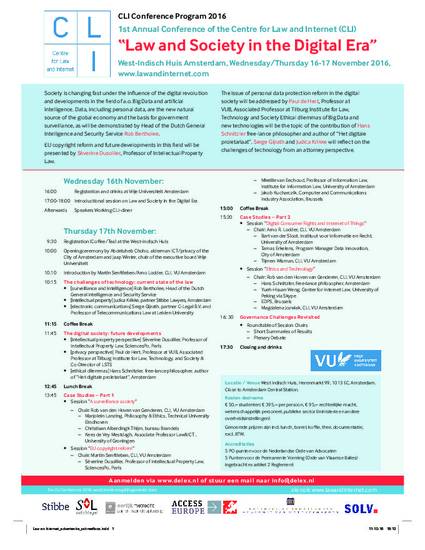
Presentation
Regulation of Unknown: A Lesson from Japan’s Public Law and Policy for Next-Generation Robots
VU University Amsterdam
(2016)
Abstract
Japanese Ministry of Economy, Trade and Industry (METI) had established the Robot Policy Committee since 2004. The METI robots policy guidelines cover many fields of business, technology, innovation and safety, which is essential to the realization of the human-robot co-existence society. A crucial part of Japanese robot policy is "Tokku" Special Zone". Japanese government approved the establishment of special zones in many major cities for universities and companies to test their robots in real environments in order to solve an industrial crisis that strict laws restrict the development of RT industry. Though the history of RT special zone is merely 10 years long, but there are already many special zones established in Fukuoka, Osaka, Gifu, Kanagawa and Tsukuba. There were also new legal issues arose in the past decade. As the development of robotics and its submergence to the society expand, the importance of RT special zone as an interface for robots and society will be more apparent. In this talk, the main focus is to view the legal impacts of the "Tokku" special zone to the human-robot co-existence society.
Keywords
- Special Zone,
- Robot Law,
- Deregulation
Disciplines
- Engineering and
- Law
Publication Date
November 16, 2016
Citation Information
Yueh-Hsuan Weng. "Regulation of Unknown: A Lesson from Japan’s Public Law and Policy for Next-Generation Robots" VU University Amsterdam (2016) Available at: http://works.bepress.com/weng_yueh_hsuan/87/
